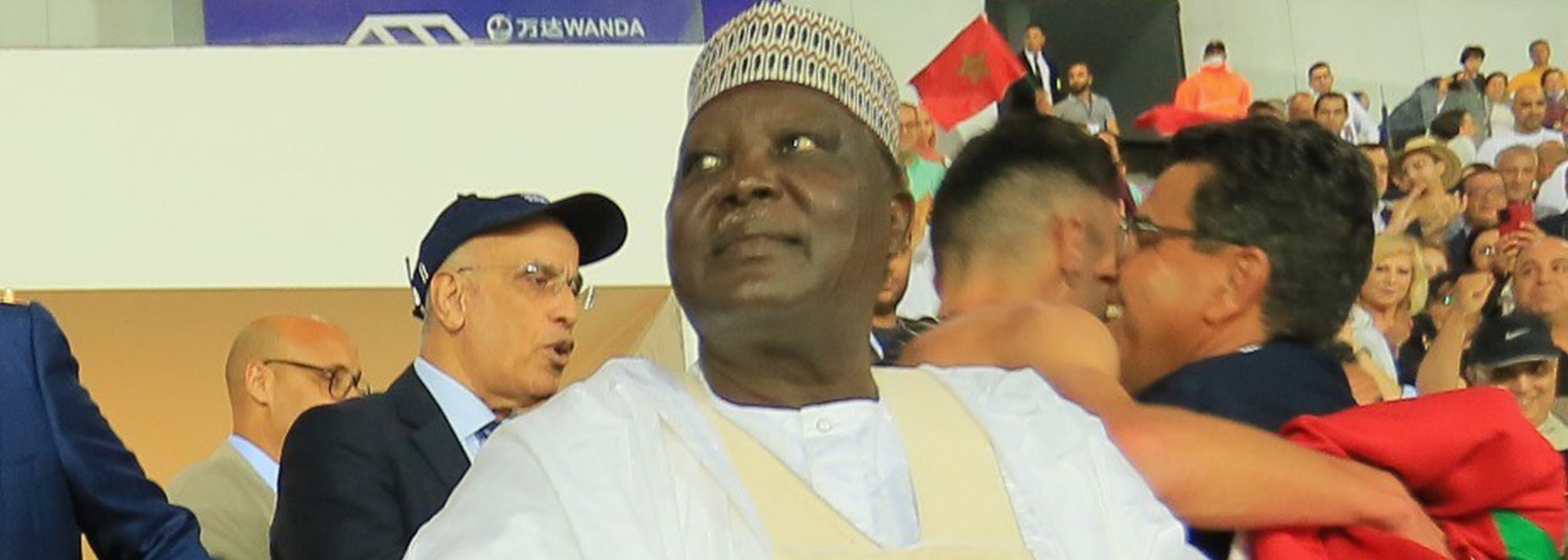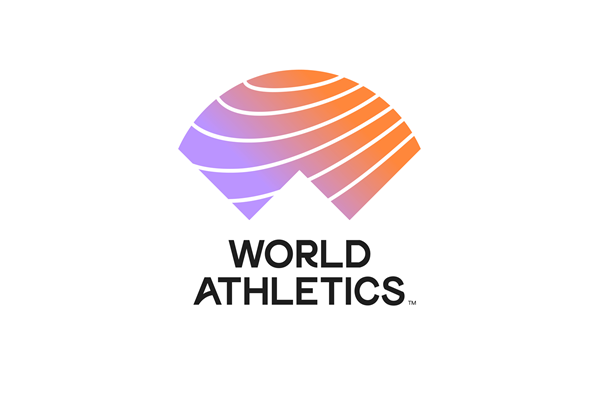"Morocco honors Africa by hosting the African leg of the Diamond League"
The President of the Confederation of African Athletics (CAA), Hamad Kalkaba Malboum, expressed his delight at the sight of "this beautiful Olympic stadium, reliable and equipped to host major competitions like the Diamond League, which took place on Sunday, May 25, 2025, in Rabat."
"The Kingdom of Morocco honors Africa by hosting the African leg of the Diamond League thanks to the Mohammed VI International Meeting in Rabat in a state-of-the-art stadium (...). I am very happy for African athletics; I am also happy to know that when Morocco organizes an event, it takes our sport very seriously," he revealed in an exclusive interview on the CAA website (www.caaweb.org).
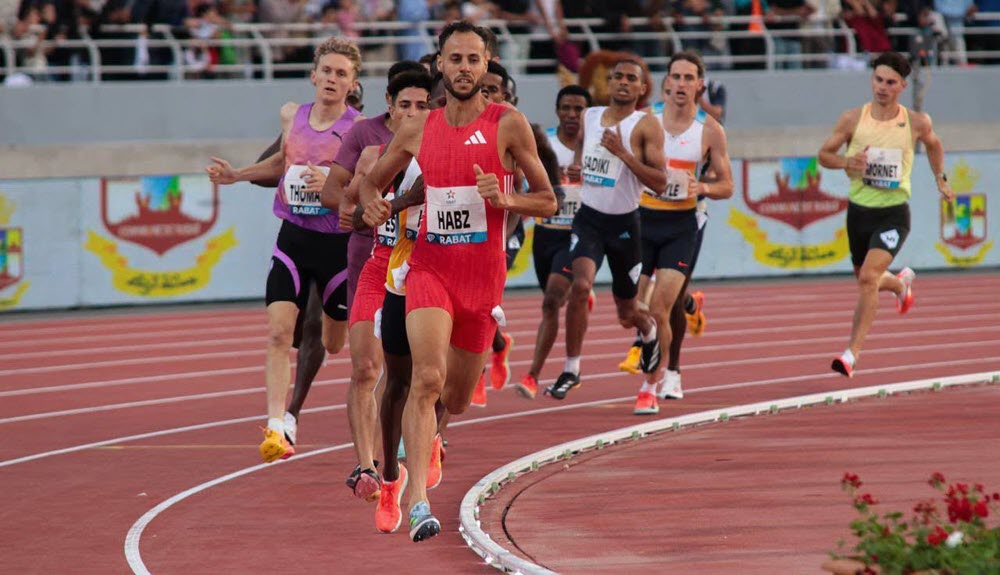 In this regard, He expressed his sincere thanks and deep gratitude to Mr. Abdeslam Ahizoune, President of the Royal Moroccan Athletics Federation (FRMA).
In this regard, He expressed his sincere thanks and deep gratitude to Mr. Abdeslam Ahizoune, President of the Royal Moroccan Athletics Federation (FRMA).
"I am very grateful. My friend Abdeslam Ahizoune, President of the Royal Moroccan Athletics Federation (FRMA), with his support, and my desire to move forward together, we brought to Africa the first Diamond League meeting that Africa is organizing here in Rabat," emphasized the CAA President.
He added that "Morocco has had great champions such as Said Aouita, Nawal El Moutawakel, Hicham El Guerrouj, Nezha Bidouane, etc., which deserve the support of the public authorities. This is undeniable."
Mr. Kalkaba did not fail to highlight the attitude adopted by world and African football leaders, "which consists of breaking the solidarity that has always existed between football and athletics for a long time. They even go so far as to make a political decision tending to break this solidarity. In football stadiums, there have always been athletics tracks allowing the two disciplines to coexist."
Athletics and football, although different, have a long-standing and continuous relationship. Athletics, with its disciplines focused on speed, endurance, and strength, often is a basis for football, by developing the essential physical qualities for the game. Moreover, some footballers started with athletics, while others do the opposite, which shows their interconnectedness. Isn't it said that athletics is the mother of all sports?
Mr. Kalkaba called for "a combination of our efforts so that everyone can grow, instead of one side trying to weaken the other. They are very rich, and we are less rich. We will have to open a discussion on this issue to safeguard the first Olympic sport."
The CAA president said that the majority of African countries do not have the financial means to build separately football stadiums and athletics tracks.
- Change of nationality, the qualification process, and the visa issue: three factors hindering the African sport.
"On the morrow of the Paris Olympic Games, we held an evaluation meeting with officials from the Association of the National Olympic Committees of Africa (ANOCA) to assess the African participation, and we noted that we had declined in terms of medals. So we asked ourselves: what is the reason for this decline? " asked the President of the Confederation of African Athletics.
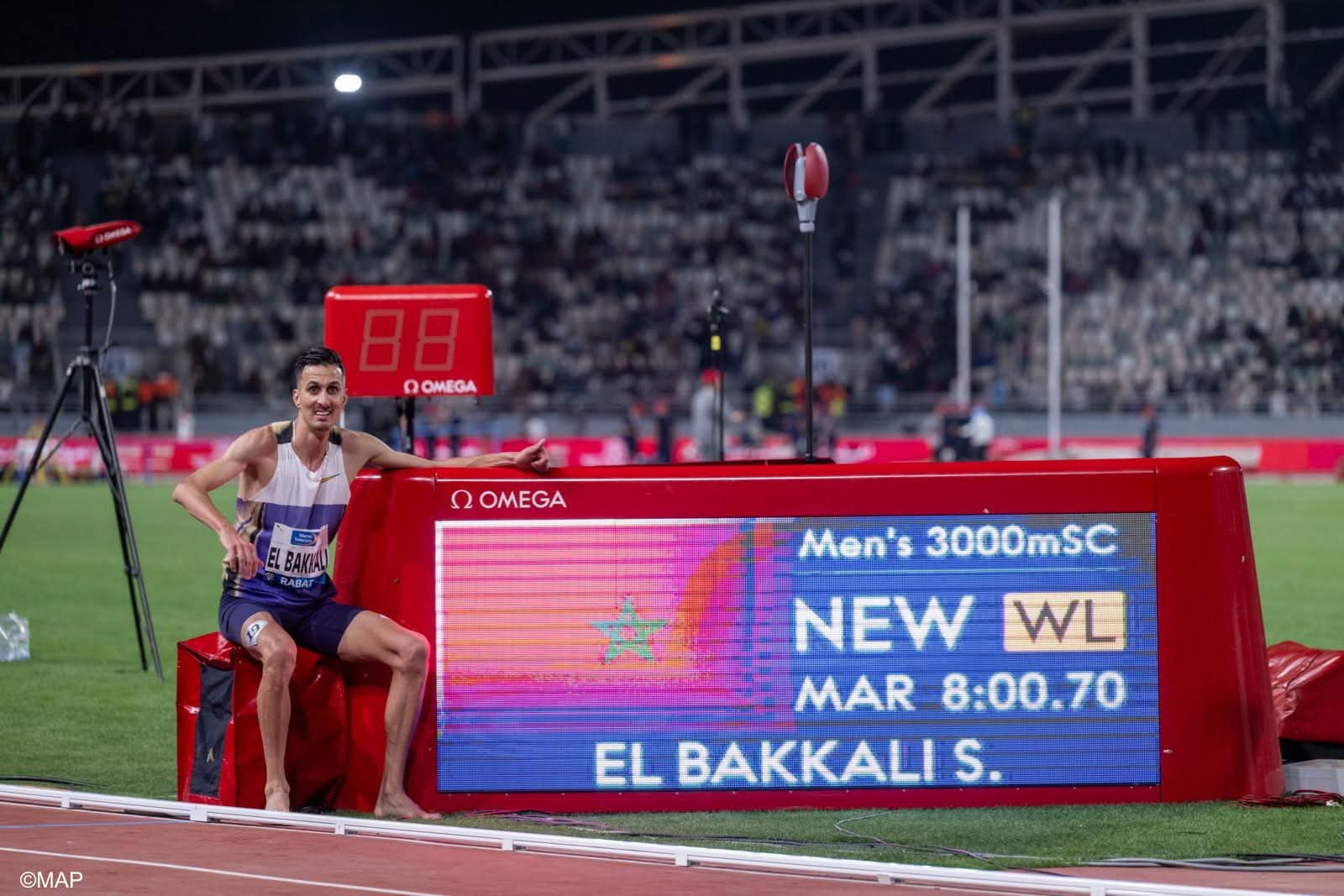 He continued, "Certainly, Africa won medals at the last Olympic Games in athletics (39 medals: 13 gold, 12 silver, and 14 bronze). But let's face it, our potential can grow to double this result." This is why the challenges that our athletes are facing must be identified to enable us to implement better strategies."
He continued, "Certainly, Africa won medals at the last Olympic Games in athletics (39 medals: 13 gold, 12 silver, and 14 bronze). But let's face it, our potential can grow to double this result." This is why the challenges that our athletes are facing must be identified to enable us to implement better strategies."
"The fact, for example, that the highest-ranked competitions for Olympic qualification generally take place outside the African continent, constitutes a serious handicap for our athletes," emphasized the President of the Confederation of African Athletics Mr. Hamad Kalkaba Malboum.
He noted that "the qualification processes adopted by international federations are very expensive, making access difficult, if not nearly impossible for our highly talented athletes. In addition, it is very challenging to get visas to seek qualification in Northern countries."
For example, he raised the case of a Cameroonian athlete, Commonwealth champion, Islamic Solidarity Games champion, and African champion, who was asked to go to Bangkok to seek qualification. It was the same for the Cameroonian women's national handball team, which had visa issues to travel to Hungary to seek qualification. As Hungary has no diplomatic representation in Cameroon, the German embassy had to handle and categorically refused to grant visas to this team, depriving them thus of participation in this tournament.
Mr. Kalkaba explained that with similar situations experienced by other African countries, it was necessary to consider finding a qualification system that would facilitate the participation of athletes in a spirit of universality.
"This situation requires us to engage in deep consultation to give our athletes more opportunities to compete with their peers at the international level and achieve their dream of representing Africa on the world stage," he said.
CASOL, a coordination, consultation, and action body serving the African sporting elite.
Created during the Constitutive General Assembly on October 12, 2024, in Yaoundé, the African Association of Olympic Sports Confederations (CASOL) embodies the desire of African sports confederations to structure themselves to better defend the rights and interests of the continent's athletes and support them towards international excellence.
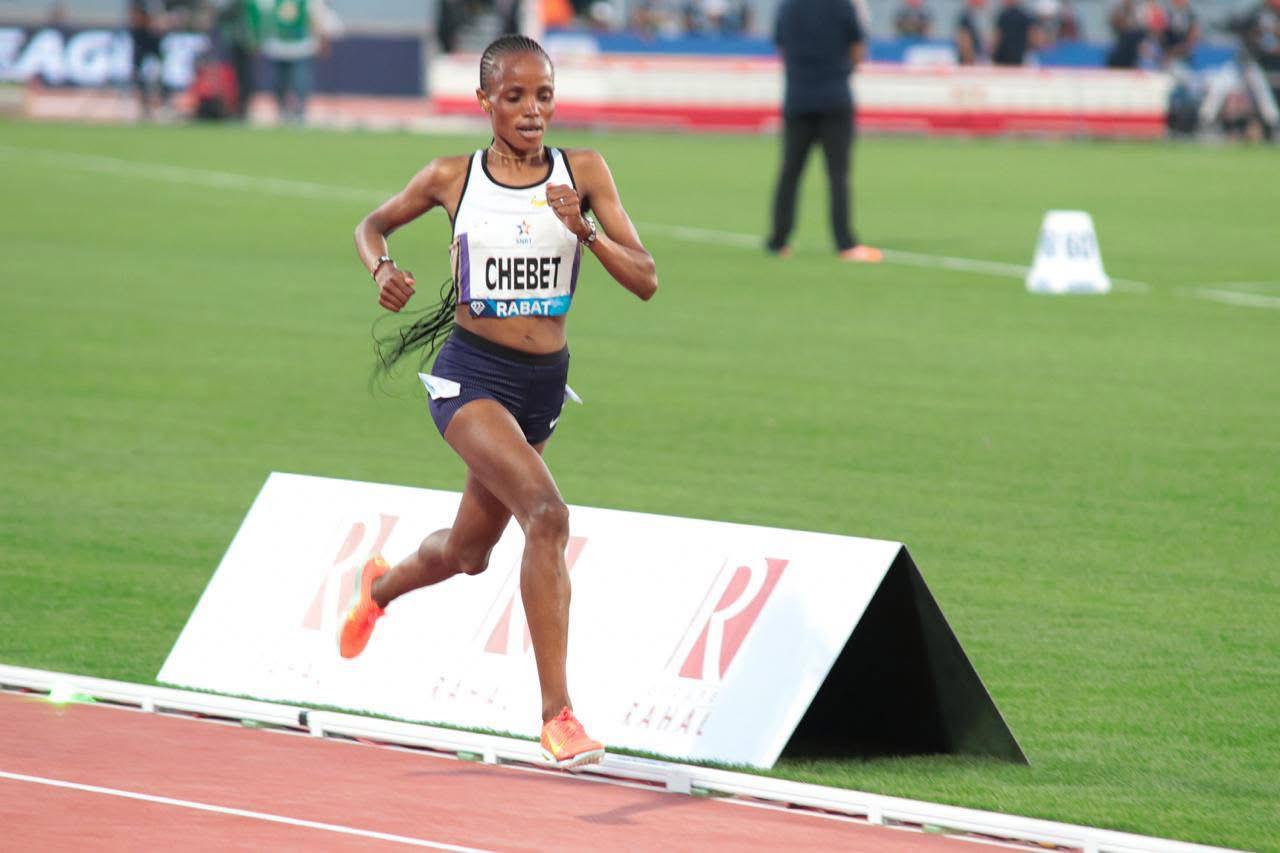 This meeting brought together 26 African sports confederations represented by their presidents, in the presence of the Association of National Olympic Committees of Africa (ANOCA) leaders.
This meeting brought together 26 African sports confederations represented by their presidents, in the presence of the Association of National Olympic Committees of Africa (ANOCA) leaders.
Its main objective is to reduce the obstacles that prevent African athletes from qualifying for the Olympic Games and to collaborate with other stakeholders such as ANOCA and the IOC, international federations, and the Association of Summer Olympic International Federations (ASOIF) to address these challenges.
CASOL thus plays an outstanding role in the preparation of African athletes and in managing results and performances during the Olympic Games.
It should be recalled that on January 7, 2025, the President of the International Olympic Committee (IOC), Mr. Thomas Bach, received Hamad Kalkaba Malboum and the President of the Association of National Olympic Committees of Africa (ANOCA), Mustapha Berraf, in Lausanne, in the presence of the IOC and Olympic Solidarity Sports Directors.
"We explained the situation. Mr Bach understood the purpose of our approach. All continents organize games that serve as qualifying stages, and the confederations also organize continental championships. The qualification system may undergo changes, so that athletes are not to go very far to qualify. We have established a number of principles at the Executive Committee, including giving priority to continental games," Mr Kalkaba recalled.
“In 2026, we will be clear on the new procedure that will facilitate qualification for the Olympic Games," said the president of the CAA and CASOL.
- African athletics is progressing in sporting performance.
For Mr Kalkaba, despite the change of nationality, the complexity of the qualification system, and the visa issue, African athletics, in general, is doing well.
"We notice that Africa is making progress in performance, particularly in sprint and filed events. In the past, Africa used to dominate from the 800m to the marathon. In recent years, we have begun to distinguish ourselves in events where we were previously absent. Today, we have one of the best sprinters in the world, Botswana's Letsile Tebogo, and we are finalists in almost all sprint events; also, Nigerian Tobi Amusan in the 100m hurdles; which was not the case before. In addition, we have a world champion in the triple jump, Burkinabe Hugues Fabrice Zango, a result that many would have considered unachievable for an African a decade ago."
A new strategy for the African athletics development
Mr Hamad Kalkaba congratulated the CAA's Technical and Development Director, Mr. Mohammed Aziz Daouda, "for his commitment and the work he carries out," he said. "On this occasion, I would like to extend my sincere congratulations for the work he does with self-denial and with great skill.
We have an ambitious project for the development of all sectors of athletics. In the various development centers under the CAA, we train managers at all levels, including communicators. We are currently training people who can play a very important role in the development of African athletics," the CAA president emphasized.
"We have targeted institutions that train sports managers and we are training those who have chosen athletics as their specialty. This is the new strategy we are developing," concluded Mr. Hamad Kalkaba.
Interview by Mohammed Benchrif.




